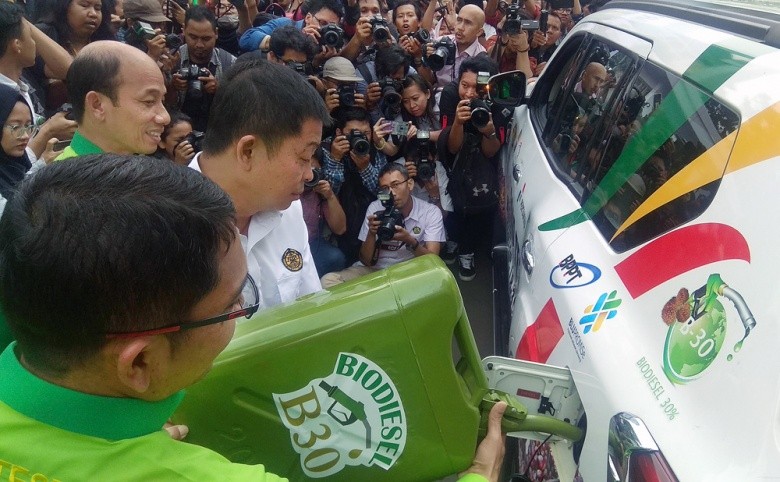Popular Reads
Top Results
Can't find what you're looking for?
View all search resultsPopular Reads
Top Results
Can't find what you're looking for?
View all search resultsNegative B20 effects foreshadow B30 problems: Bus operators
Bus operators have complained that 20 percent blended biodiesel has caused their engines to run poorly, providing a cautionary message for future developments as Indonesia envisions a future with unblended pure biodiesel to fuel vehicles across the country.
Change text size
Gift Premium Articles
to Anyone
B
us operators have complained that 20 percent blended biodiesel (B20) has caused their engines to run poorly, providing a cautionary message for future developments as Indonesia envisions a future with unblended pure biodiesel to fuel vehicles across the country.
Young Indonesian Autobus Entrepreneurs Association (IPOMI) head Kurnia Lesani Adnan told tempo.co that the biodiesel mixture has left sediment in engine filters, worsening performance. Bus companies have to add extra filters to cope with the effects.
Considering B20's drawbacks, he fears that the mandatory B30 could be even worse.
"In principle, we support the government's program. However, please pay attention to B30's impact [on engines]," said Kurnia, adding that brand holder agents have yet to honor the warranty over the mix's negative impact.
President Joko "Jokowi" Widodo had urged stakeholders to accelerate implementation of the government's policy on the mandatory use of crude palm oil (CPO) biodiesel blends from 20 to 30 percent by January 2020 and to 50 percent blended diesel (B50) by the end of 2020.
The Agriculture Ministry has even gone as far as trying out the use of a 100-percent biodiesel (B100) fuel that uses fatty acid methyl ester from CPO in April 2019.
The policy aims to boost domestic palm oil in the world’s top palm oil producing country, amid the European Union’s palm oil restrictions, while reducing the country's dependence on diesel fuel imports. (mai)










